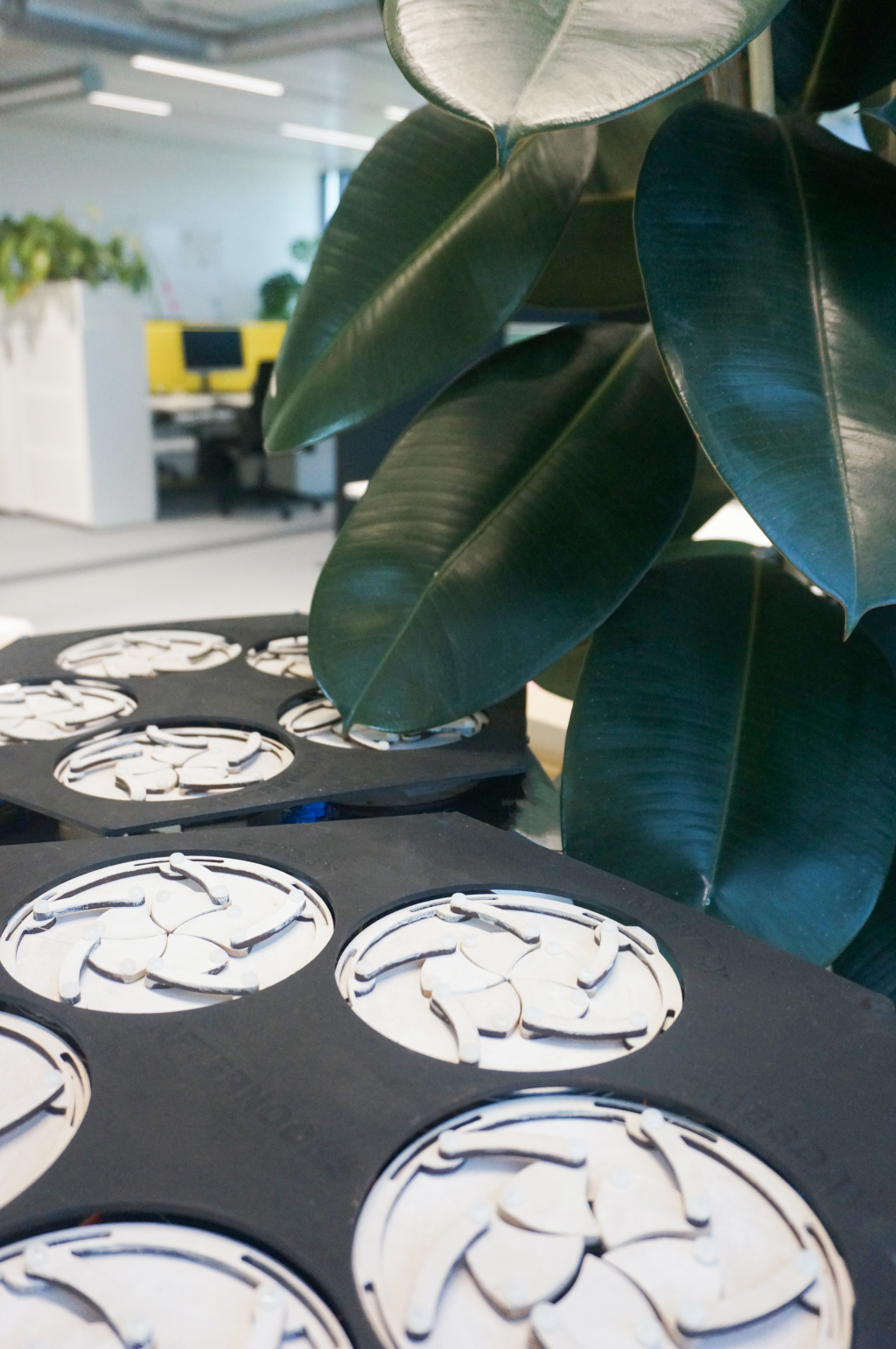UN_OSO
Yinying Miao
Only 1% of open-space workers can concentrate on their work without taking extra measures such as wearing noise-cancelling headphones. Office noise can be an obstacle when it comes to concentration, productivity, and willingness to come to work. Although noise is an environmental variable, current solutions are mostly individual.
How can data physicalization stimulate group-level reflection on office noise?
Individuals have personal feelings and tolerances regarding noise related to their need to concentrate. Office workers stated that they sometimes find it hard to escape from endless conversations, as they would like to be polite. Furthermore, noise data are often not accessible to them and lastly, they struggle to reflect on their feelings, wishes, and needs. They are unaware of what others think, requiring a conversation trigger.
This research explores the intersection between office noise and data physicalization in order to better understand noise perceptions in an open-space office. Inspired by a data-enabled and user-centred approach, the UN_OSO tool was iterated in combination with user research and hands-on explorations.
UN_OSO is a unique tool that enables office workers to “see”, understand, talk, and reflect on noise perceptions in the open-space office. It consists of a collector and a design. The collector integrates a sound sensor that shows ambient decibel values. It does not require user attention and provides no output. The tool has two modules: morning and afternoon timeslots. Each module includes 5 IRIS mechanism designs, presenting an overview of the average sound levels for the corresponding weekdays and timeslots. The more it opens, the higher the average value of sound in the office corresponding timeslot of the day.
UN_OSO is the result of an iterative design process with multiple user research, from interviews to deployment studies. Users helped to uncover the sociotechnical complexity around open-space office noise and reveal where changes need to be shaped.
UN_OSO collects and processes average office sound/noise data into meaningful, abstract, tangible shape changes. The physical presence of the data creates an understandable and engaging medium. It empowers office workers to ‘see’, understand, and reflect on the complexity of office noise.
UN_OSO not only offers human-data interactions but also acts as a conversation starter, supporting human-human interactions for group-level problem-solving. In the future, UN_OSO could combine immediate feedback, and include subjective input possibilities to make better sense of the data.

Share
Contacts
- -Yinying Miao
- -Steven Houben
- -Hans Brombacher



